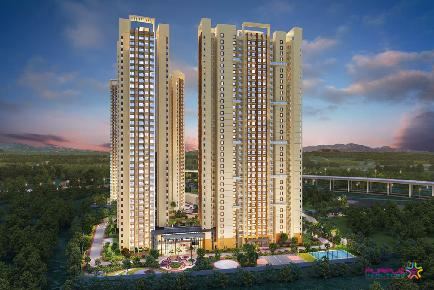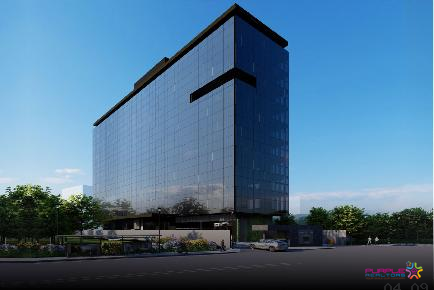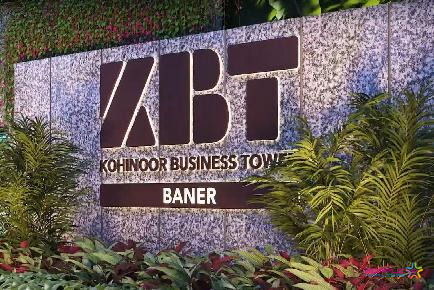
SBH Solitaire Business Hub 3 Baner Pune Office Space Commercial Project Spaces For Sale and Lease
Baner,Pune
Pune
Real estate has historically been acknowledged as a potentially lucrative investment asset class, which is why it continues to draw attention all across the globe. In India, the real estate sector is also the second-largest employer and is estimated to grow by 30% in volume and scope over the coming decade. Forbes pegged the growth of the Indian real estate industry at 7.0% in 2017, and the housing sector alone has been contributing to between 5-6% of the nation’s GDP over the past couple of years.
All of this sounds good if you are a real estate investor or planning to become a part of the industry. But making money out of real estate can still be tricky territory. It is worth investing your time into understanding the market and the factors that can help make residential property investment profitable for you.
To start off, let's not go too deep into how property investors across the globe have been able to make millions, but stick to exploring the opportunities in residential property investment in India that lie in front of you.
The most common and popular source of residential real estate investment profit in India comes from appreciation. To put it simply, appreciation is the increase in the value of the residential property you own. Residential property for investment appreciates according to its location. In India, cities like Mumbai, Pune and Bangalore have been garnering the most satisfactory returns on residential investment. This has been time and again been confirmed by various leading real estate research firms as well as experienced real estate investors.
However, it is not the cities as a whole that you should consider, but their growth corridors. Residential property values appreciate in good neighborhoods which are complemented by easy transit routes, public transport nodes, shopping centres, schools, hospitals, parks and other public spaces, and more. The more the number of amenities a location offers, the greater is the incremental growth in residential real estate values.
For this reason, Mumbai's most lucrative residential property investment hotbeds have been areas like Wadala, Chembur, Andheri, Mulund, Kanjurmarg and Ghodbunder Road in Thane. These are not necessarily the most expensive areas in Mumbai, but they offer property buyers the advantages of good properties by reputed builders, excellent connectivity with various important parts of the city and decent social infrastructure.
In Bangalore, areas like Nayandahalli, Hebbal, Yelahanka, HSR Layout and Sarjapur Road have seen the fastest appreciation for the same reasons, apart from the fact that there is a lot of scope for more development. These areas are also relatively affordable and well-connected to the city's commercial hubs, predominantly those in the Infotech sector which is the biggest economic driver in Bangalore.
In Pune, the best locations to invest in residential property include the slightly pricier Baner and Kharadi and the more affordable Balewadi, Wakad and Hinjewadi. The latter three locations have the advantages of competitive property prices, fairly rapid appreciation because of new infrastructure coming in, and excellent connectivity to Pune's many workplace hubs. Residential projects by reputed developers are in great demand here, not only for purchase but also from rental housing seekers.
The scope for rental income must always be considered while making a residential property investment, even if the primary objective is capital appreciation. Many people purchase their investment properties with bank loans, and rental income helps pay for some of the monthly EMI outgoings. Another benefit of putting an investment residential property out on rent is that the property remains in use, and this ensures that the fittings, fixtures and plumbing are regularly maintained. This is an important factor when the time comes around to sell the property.
Every growing location needs time to come into its own and become a full-fledged flourishing market. In the process of getting upgraded, it also draws increasing demand from homebuyers. Meanwhile, every property market goes through its ups and downs - it is very rare to see sustained growth in any location, and there will be 'low' periods and sometimes even periodic de-growth. This is why in India, the ideal 'investment horizon' - or the period of time for which one should remain invested in a property - is between 4-5 years or longer if possible.
In this time, considerable growth in a property's value is more or less assured regardless of market fluctuations. This is the same reason why one should remain invested in instruments like mutual funds for at least the same period. For the patient investor who has chosen his or her property after enough market research, turning a profit is never an issue. This is why in India, residential property remains such a popular route to growing one's wealth while simultaneously attaining financial stability and security.

Runwal The Central Park PCMC Pune 2 3 4 BHK Price Location Floor Plan Review
Pimpri Chinchwad PCMC, Pune

Excellaa Virtu Pimple Nilakh Pune 3 BHK Price Location Floor Plan Review
Pimple Nilakh, Pune

K Pune Bavdhan Residential Project
Bavdhan, Pune

SBH Solitaire Business Hub 3 Baner Pune Office Space Commercial Project Spaces For Sale and Lease
Baner,Pune

Greystone by Tremont Baner Pune Commercial Office Spaces
Baner,Pune

ATC Amar Tech Center Viman Nagar Pune Commercial Office Space For Lease
Viman Nagar,Pune

SBH Solitaire Business Hub Baner Pune Office Space Showroom Restaurant Spaces For Lease and Sale on High Street Balewadi
Baner,Pune

KBT Kohinoor Business Tower Baner Pune Commercial Project Office Space Price Location Review
Baner,Pune

The Cullinan by Garve Pimple Nilakh Pune Commercial Project Floor Plan Review
Pimple Nilakh,Pune

Wakad Business Bay WBB Wakad Pune Commercial Project
Wakad,Pune

WYNG By Kundan Spaces Camp Pune Commercial Office Space Price Location Floor Plan Review
Pune,Pune

VJ IndiWork Baner Central Baner Pune Commercial Project
Baner,Pune

KWT KOHINOOR WORLD TOWER PIMPRI PUNE COMMERCIAL OFFICE SPACE SHOP SHOWRROM
Pimpri Chinchwad PCMC,Pune